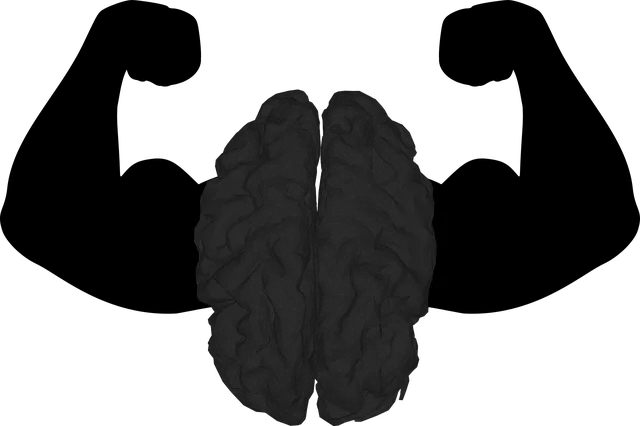Aurora Kaiser Permanente behavioral health services are tackling the complex challenge of mental health diagnosis with innovative strategies. They integrate Social Skills Training, Risk Management Planning, and emotional regulation techniques for better patient communication, hazard mitigation, and behavioral cue interpretation. Advanced assessment tools, personalized care plans, and evidence-based practices, including mindfulness meditation, coping skills development, and compassion cultivation, enhance diagnosis accuracy and patient outcomes. Open communication, active listening, and collaborative decision-making create a safe space encouraging emotional healing and improved mental wellness.
Mental illness diagnosis accuracy is a critical aspect of patient care, especially at comprehensive healthcare organizations like Aurora Kaiser Permanente Behavioral Health Services. This article delves into the current landscape of mental health assessment within the system, exploring challenges that hinder precise diagnoses. It highlights innovative strategies to enhance accuracy, including advanced training programs and patient-centric approaches. By focusing on these efforts, Aurora Kaiser Permanente strives to improve outcomes and provide more effective care for individuals navigating mental health issues.
- Understanding Mental Health Diagnosis: The Current Scenario at Aurora Kaiser Permanente Behavioral Health Services
- Challenges in Accurate Diagnosis: Uncovering the Complexities
- Innovative Approaches to Enhance Diagnosis Accuracy
- Training and Education Programs: Empowering Healthcare Professionals
- Patient Engagement and Support: A Holistic Approach to Diagnosis Improvement
Understanding Mental Health Diagnosis: The Current Scenario at Aurora Kaiser Permanente Behavioral Health Services

At Aurora Kaiser Permanente Behavioral Health Services, understanding mental health diagnosis remains a complex challenge. Despite advancements in research and treatment methodologies, misdiagnosis rates remain unacceptably high, often due to the intricate nature of mental illnesses that overlap and co-occur. This complexity is exacerbated by individual variability in symptoms and behavioral expressions, making it difficult for even seasoned professionals to accurately pinpoint specific conditions.
Currently, Aurora Kaiser Permanente Behavioral Health Services is implementing targeted initiatives aimed at enhancing diagnosis accuracy. These include integrating Social Skills Training programs to improve communication between patients and mental health professionals, as well as adopting comprehensive Risk Management Planning strategies to mitigate potential hazards associated with mental health care delivery. Additionally, focusing on training staff in emotional regulation techniques promises to enhance the ability of professionals to interpret nuanced behavioral cues, thereby improving diagnostic precision.
Challenges in Accurate Diagnosis: Uncovering the Complexities

Mental health diagnosis accuracy has long been a complex and challenging aspect of healthcare, particularly with conditions like depression. The human mind is intricate, making it difficult to pinpoint precise indicators for various mental disorders. This complexity poses significant hurdles for professionals at Aurora Kaiser Permanente behavioral health services when attempting accurate diagnoses.
The process involves an in-depth exploration of symptoms, personal history, and environmental factors. Misdiagnosis or overlooking subtle signs can lead to inadequate treatment plans. Empathy building strategies and fostering open communication between patients and healthcare providers are essential tools to navigate these complexities. By implementing Stress Reduction Methods, professionals can create a supportive environment, encouraging individuals to share their experiences honestly, which is crucial for an accurate diagnosis and effective Depression Prevention strategies.
Innovative Approaches to Enhance Diagnosis Accuracy

At Aurora Kaiser Permanente behavioral health services, innovative approaches are being implemented to enhance mental illness diagnosis accuracy. These strategies go beyond traditional methods, incorporating advanced assessment tools and personalized care plans tailored to individual needs. By integrating cutting-edge technology with evidence-based practices, healthcare professionals are better equipped to navigate the complex landscape of mental health symptoms.
Effective communication strategies play a pivotal role in this improved diagnosis process. Encouraging open dialogue between patients and providers fosters a safe space for emotional healing processes. This includes active listening, clear explanations of diagnostic criteria, and collaborative decision-making. Such approaches not only enhance understanding but also promote patient engagement in their care, which is crucial for successful depression prevention and overall mental wellness.
Training and Education Programs: Empowering Healthcare Professionals

Aurora Kaiser Permanente behavioral health services have been at the forefront of initiatives aimed at enhancing mental illness diagnosis accuracy. One significant strategy involves training and education programs designed to empower healthcare professionals. These programs equip practitioners with advanced techniques and knowledge, enabling them to navigate complex symptoms and behaviors more effectively.
Through comprehensive workshops and ongoing support, healthcare providers gain insights into innovative assessment methods, including the integration of Mindfulness Meditation and Coping Skills Development. By fostering a deeper understanding of mental health conditions, these initiatives ultimately promote Self-Esteem Improvement among patients, leading to more precise diagnoses and tailored treatment plans.
Patient Engagement and Support: A Holistic Approach to Diagnosis Improvement

In efforts to enhance mental illness diagnosis accuracy, patient engagement and support play a pivotal role. Aurora Kaiser Permanente behavioral health services recognize that fostering open communication and empowering patients is essential for improving diagnostic processes. By adopting a holistic approach, they aim to create an environment where individuals feel safe to share their experiences and concerns. This involves active listening, empathy, and the integration of Compassion Cultivation Practices to build trust between patients and healthcare providers.
Mental illness stigma reduction efforts are also integrated into this strategy, encouraging patients to seek help without fear of judgment. Through education and awareness campaigns, Aurora Kaiser Permanente seeks to destigmatize mental health issues, promoting understanding and early intervention. This comprehensive approach not only improves diagnosis accuracy but also enhances patient outcomes, offering anxiety relief and supporting overall well-being.
The pursuit of enhancing mental illness diagnosis accuracy at Aurora Kaiser Permanente Behavioral Health Services is a multifaceted endeavor. By understanding the current challenges, implementing innovative approaches, intensifying training, and fostering patient engagement, we can significantly improve outcomes for individuals navigating their mental health journeys. Continued efforts in these areas will not only benefit patients within our services but also contribute to the broader advancement of mental health diagnosis accuracy across healthcare sectors.






